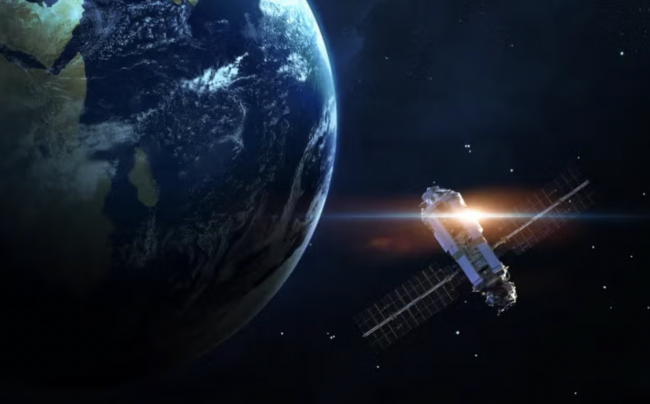When we think of diplomacy, we often think of countries in discussions to address concerns that impact life on Earth, such as trade and economics, environmental and climate concerns, human rights and security and defense. However, space diplomacy, which is the practice of using international cooperation and agreements to regulate space activities, promote peaceful exploration, and address issues such as space security, sustainability and resource allocation, rarely comes to mind.
I have always been fascinated by space exploration since I was a child: I would read books about astronauts and planets, visit museums and space exhibits, and watch documentaries about missions to the Moon and Mars. At the time, my mother was working with the UN, and I would often hear about intergovernmental discussions at the General Assembly. She spoke of the difficulty and frustrations of getting 193 Member States to agree: the negotiations going into the early hours of the morning, endless discussions over a single word….But she would also highlight how exciting being part of the international decision-making process was: seeing first-hand the various world views, how an excellent chairman could tease a compromise out of seemingly irreconcilable positions, and how many agreements were shaped informally “in the corridors” before being announced in formal sessions. So, when I learned about space diplomacy, I was immediately captivated, as I felt my past experiences had naturally led me to the subject.
Space diplomacy has become increasingly important as the space race, which began in the mid-20th century as a Cold War competition between the United States and the Soviet Union, has intensified over time and developed into a broader global phenomenon.
For example, Kongsberg (2025) reports that more than 11,000 active satellites currently orbit the Earth, operated by various countries to support communication, navigation, weather forecasting, scientific research, national security and global connectivity. Space is also a new tourism destination with companies in the U.S. and Russia leading the way in commercial space travel for the elite. It is also used as a hub for research and development, supported by countries like the US, Russia, China, the European Union, Japan and Canada.
With the expansion of space activities and increasing involvement from countries, diplomacy is key to ensuring a peaceful and cooperative use of space for different purposes.
Why is space diplomacy important?
| Preventing conflicts | As more nations take part in space activities, competition for resources like orbital slots and lunar minerals could lead to overall tensions. |
|---|---|
| Managing space debris | With thousands of satellites and space debris around Earth, international agreements and participation is key to developing regulations for debris management and removal. |
| Resource sharing | The potential for mining resources on the Moon, asteroids, and more raises questions about ownership, environmental impact, cultural and scientific preservation, sustainability for future generations, and the potential for conflict. Diplomatic frameworks like the Artemis Accords and the Outer Space Treaty (detailed below) help prevent conflicts over ownership and exploitation. |
| Avoiding militarization | Space is being used and viewed as a field of defense more and more, and a possibility for the future. Diplomatic efforts are needed to prevent a future arms race in space and set norms against the deployment of weapons. |
| International collaboration | Space exploration is also costly. International cooperation projects, such as the International Space Station (ISS) and lunar missions, allow countries to combine resources where both parties benefit. |
| Ensuring equal access to all | Not all nations have the same capabilities in space exploration. For instance, developing countries face challenges due to their limited funding, technological gaps, little infrastructure and reliance on international partnerships. Diplomatic efforts can help make space accessible to all, preventing a “monopoly” by superpowers around the world. |
| Legal and ethical considerations | Space activity brings up questions about liability for accidents and the ethical impacts of human conquest beyond Earth. Diplomacy helps create legal measures to address these challenges, which are used internationally. |
| Climate monitoring & Disaster management | Satellites play a crucial role in tracking climate change, natural disasters, and environmental degradation. Space diplomacy promotes the sharing of data and resources. |
We need to go beyond cooperation frameworks to support space diplomacy
To support countries in cooperation efforts towards the use of space, international agreements, organizations and frameworks have been developed. For instance:
- The Outer Space Treaty (1967), negotiated at the United Nations and ratified by over 100 countries, is the most important and foundational source of space law. It prohibits the placement of nuclear weapons or any other weapons of mass destruction in orbit, on the Moon or any celestial body. It declares that space should be used for peaceful purposes only, and nations must avoid harmful contamination of space.
- The United Nations Office for Outer Space Affairs (UNOOSA) was created by the United Nations in 1958 to promote international cooperation in the peaceful use and exploration of space, and in utilizing space science and technology for sustainable economic and social development. Among other activities, it helps countries use space data and technologies, such as satellite imagery, to prevent and manage disasters. It also helps them understand and develop national space laws aligned with international frameworks.
- Led by NASA, the Artemis Accords are a series of agreements (non-binding) that provide a set of principles to aid in governing the civil exploration and use of outer space. As of January 2025, 53 countries have signed the Accords, committing to transparency and peaceful exploration.
Countries also use partnerships to advance space exploration. For instance, the United States and Japan signed an agreement in April 2024 to develop a new lunar rover to enhance sustainable human exploration of the Moon.
As space activities grow, so do the challenges associated with them. Space diplomacy is no longer optional, and is now necessary to ensure that outer space remains a place for peace instead of conflict. While treaties and cooperation frameworks provide a basis for responsible space governance, there are still challenges and space concerns, such as space debris, resource exploitation and militarization. Strengthening diplomatic efforts, promoting partnerships between countries and constantly updating legal frameworks to take into account new challenges that emerge as time progresses will be essential to securing a sustainable and equitable future beyond Earth.






